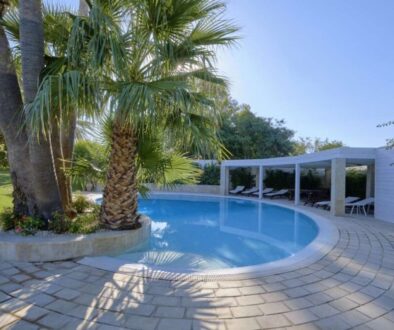How preventive maintenance can save pool route owners significant money while ensuring their businesses run smoothly and efficiently, ultimately leading to greater profitability.
How Preventive Maintenance Saves Money for Pool Route Owners
Preventive maintenance is a crucial element for anyone involved in the pool service industry, particularly for pool route owners. By proactively addressing potential issues before they escalate, pool route owners can significantly reduce costs, enhance customer satisfaction, and ultimately improve their bottom line. This article delves into the importance of preventive maintenance in the pool service sector, exploring its benefits, tips for effective implementation, and how it can lead to long-term financial success.
Introduction
In the competitive world of pool maintenance, the costs associated with repairs and customer dissatisfaction can quickly add up. Owners of pool routes must adopt strategies that not only keep their clients happy but also safeguard their investments. Preventive maintenance is one such strategy that can lead to substantial financial savings. It involves regular inspections, routine cleaning, and timely repairs aimed at preventing larger, more costly issues down the line. In this article, we will discuss the various aspects of preventive maintenance, its financial implications, and why it should be a priority for every pool route owner.
The Financial Implications of Preventive Maintenance
Investing in preventive maintenance may seem like an additional expense, but it can save pool service companies considerable money in the long run. According to industry studies, businesses that implement preventive maintenance strategies can save up to 30% on overall maintenance costs. This is primarily due to fewer emergency repairs, decreased downtime, and extended equipment lifespan. Regular maintenance checks can identify potential problems before they escalate into costly repairs, allowing pool route owners to allocate their resources more effectively.
For instance, consider a scenario where a pool route owner neglects routine equipment checks. A small issue, such as a malfunctioning pump, could go unnoticed and lead to significant equipment failure. The cost of replacing a pump is substantially higher than the cost of performing regular maintenance checks. By prioritizing preventive measures, pool route owners can avoid unexpected expenses and maintain a steady cash flow.
Furthermore, preventive maintenance also leads to improved resource management. By creating a detailed maintenance schedule, owners can optimize their workforce and reduce labor costs. This proactive approach enables pool route owners to allocate their time and resources efficiently, ultimately enhancing their profitability.
Customer Satisfaction and Retention
Another essential aspect of preventive maintenance is its direct impact on customer satisfaction. In an industry where customer loyalty plays a pivotal role, ensuring that pools are consistently well-maintained translates to higher retention rates. When pool owners experience fewer issues and enjoy pristine water quality, they are more likely to continue utilizing the same service.
For example, by regularly checking and maintaining pool equipment, a pool route owner can prevent issues such as algae growth, cloudy water, or malfunctioning heaters. These nuisances can lead to customer complaints and, in some cases, clients switching to competitors. Happy customers are more likely to recommend services to friends and family, leading to organic growth through referrals.
In addition, many homeowners are willing to pay a premium for reliable service. By demonstrating a commitment to preventive maintenance, pool route owners can justify higher pricing, leading to increased revenue without sacrificing customer loyalty.
Implementing an Effective Preventive Maintenance Plan
To reap the benefits of preventive maintenance, pool route owners must implement a structured plan. Here are some key steps to establish an effective preventive maintenance program:
- Regular Inspections: Schedule routine inspections of pool equipment, surfaces, and water quality. This should include checking pumps, filters, heaters, and chemical levels. Regularly scheduled inspections can help identify issues before they become problematic.
- Documentation and Tracking: Maintain detailed records of all maintenance activities, including inspections, repairs, and replacements. This documentation will not only help track equipment longevity but also provide valuable insights into recurring issues that require attention.
- Employee Training: Ensure that all employees are trained on the importance of preventive maintenance and how to identify potential problems. Providing ongoing training will empower your staff to be proactive in addressing issues.
- Client Communication: Keep your clients informed about maintenance schedules and any potential issues that may arise. Transparency fosters trust and allows for a better understanding of the value of the services provided.
- Use Technology: Leverage technology to automate reminders for inspections and maintenance tasks. Utilizing software or apps can improve efficiency and ensure that no critical maintenance tasks are overlooked.
Implementing these strategies will allow pool route owners to maintain their equipment effectively, reduce the likelihood of emergencies, and enhance overall business operations.
Cost-Efficiency through Smart Investments
The financial health of a pool service business is closely tied to smart investment decisions. Many pool route owners may hesitate to invest in preventive maintenance due to perceived costs. However, it is essential to view these expenses as investments in the longevity and reliability of the business. High-quality equipment and regular maintenance checks can prevent unexpected breakdowns, thereby saving money over time.
Investing in durable, high-quality equipment may require a higher initial outlay, but it often pays off through reduced repair costs and longer operational lifespan. Similarly, adopting eco-friendly cleaning products can lead to lower chemical costs and reduced environmental impact, appealing to an increasingly eco-conscious consumer market.
Moreover, establishing partnerships with suppliers and service providers can lead to discounts on equipment and materials needed for maintenance. By negotiating better terms, pool route owners can further enhance their profit margins.
Conclusion
Preventive maintenance is not merely a cost; it is a strategic investment that can yield significant financial benefits for pool route owners. By proactively addressing maintenance needs, businesses can reduce repair costs, enhance customer satisfaction, and prolong the lifespan of their equipment. Implementing an effective preventive maintenance plan will not only safeguard investments but also position pool route owners for long-term success in the competitive pool service industry.
In a business landscape where customer loyalty and financial stability are paramount, prioritizing preventive maintenance is a smart move. For pool route owners looking to streamline operations and optimize profits, embracing preventive maintenance is key. To learn more about how to effectively manage your pool service business, explore our offerings at Pool Routes for Sale, and take the next step toward ensuring your business thrives.



